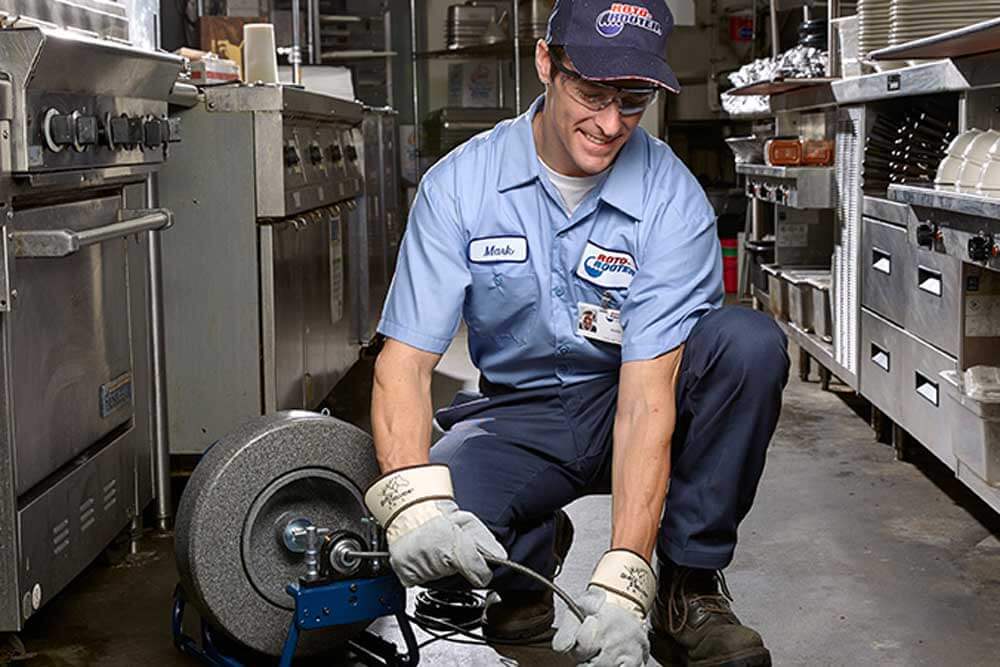
A well-maintained plumbing system is crucial for the success and longevity of any multi-tenant property. Property managers must ensure the smooth operation of plumbing infrastructure to avoid costly repairs and tenant dissatisfaction.
A well-thought-out plumbing maintenance plan helps avoid emergencies and ensures tenants experience minimal disruptions. Commercial properties, in particular, benefit from the expertise of a commercial plumber who can address specific challenges associated with larger systems.
A plumbing maintenance plan will prevent issues and increase the property’s value. By taking a proactive approach, you can preserve the integrity of pipes, fixtures, and water systems across all units. A well-kept system reflects positively on the property and ensures tenants feel you take their needs seriously, fostering long-term satisfaction.
Assessing the Plumbing System
Before creating an effective maintenance plan, it is important to evaluate the current state of the plumbing system. This first step requires a comprehensive inspection of the entire property to identify existing issues. A professional commercial plumber can help with this process by thoroughly inspecting pipes, water heaters, fixtures, drains, and sewage systems. They will assess the condition of each component and note any potential risks or areas in need of repair.
Assessing the plumbing system’s visible and hidden aspects is vital. While sink or toilet leaks are often easy to identify, issues with underground pipes or water pressure might require specialized equipment or expert insight. An accurate assessment will allow you to prioritize maintenance tasks based on urgency and potential impact. This step ensures that nothing gets overlooked and that the plan created is comprehensive and tailored to your property’s needs.
Setting a Maintenance Schedule
After assessing the plumbing system, the next step is setting a realistic and comprehensive maintenance schedule. Regular plumbing inspections can help prevent common problems, such as clogged drains, leaking pipes, and water heater malfunctions. This schedule should cover both routine inspections and more in-depth maintenance tasks.
It is advisable to schedule plumbing checkups at least once a year for general maintenance. However, certain areas may require more frequent attention. For example, water filtration systems need to have their filters replaced more often, while water heaters should get flushed annually to prevent sediment build-up. A consistent schedule also allows property managers to identify potential problems early, preventing minor issues from becoming costly repairs.
For optimal results, schedule a plumber online that understands the unique needs of multi-tenant properties. They can help design a maintenance schedule tailored to your building requirements. Additionally, scheduling services well in advance helps avoid last-minute emergencies, ensuring uninterrupted service for tenants.
Preventative Measures and Emergency Plans
Preventative measures are an essential part of any plumbing maintenance plan. You can avoid expensive repairs and keep the plumbing system in good working condition by addressing minor issues before they escalate. Regularly cleaning drains, replacing old pipes, and inspecting faucets and toilets for leaks are just a few examples of simple preventative actions that can save you from more significant problems down the road.
In addition to preventative measures, it’s crucial to have an emergency plan in place for plumbing failures. Multi-tenant properties face unique challenges in plumbing emergencies, as any disruption can affect multiple tenants simultaneously. Establish clear protocols for responding to plumbing emergencies, including identifying primary and backup contacts (such as a reliable plumber), emergency shut-off valve locations, and guidelines for tenant communication. Be sure tenants know who to contact in case of a plumbing emergency, and ensure the contact person is reachable during all hours.
Furthermore, tenants should be aware of basic emergency actions, like how to shut off their water supply, should the need arise. Providing this knowledge empowers tenants to manage minor situations themselves while you address more significant issues.
Tenant Communication
Communication with tenants is key to maintaining a functional plumbing system in multi-tenant properties. Tenants should be informed about preventative maintenance schedules, how to prevent plumbing problems, and how to report issues when they arise. Clear communication ensures tenants understand their role in preserving the plumbing system and helps property managers stay on top of minor issues before they become significant problems.
Provide tenants with an easy way to report plumbing issues, even after business hours. Many commercial properties now allow tenants to schedule a plumber online for non-emergency issues or routine maintenance. Ensure tenants know this option, as it can streamline the process and prevent delays in addressing plumbing concerns.
Additionally, update tenants on upcoming maintenance or repairs. Scheduling maintenance work at convenient times for tenants helps avoid disruptions to their daily lives while maintaining a smooth operation for the property. Regular communication, whether through email or building notices, keeps everyone on the same page and enhances tenant satisfaction.
Monitoring and Updates
The final element of your plumbing maintenance plan is consistent monitoring and updates. Property managers must regularly evaluate the effectiveness of their maintenance efforts and make adjustments when necessary. Monitoring the condition of key plumbing components such as water pressure, flow rates, and drainage is crucial. This ongoing monitoring allows you to catch early signs of wear and tear before they lead to costly repairs.
Consider creating a digital log or using property management software to track plumbing maintenance. This will make it easier to schedule future inspections, keep records of repairs, and monitor plumbing system health over time. Tracking maintenance also helps ensure that no scheduled inspections or repairs are missed.
As the plumbing system ages, it may require occasional updates or upgrades. If you identify outdated or inefficient components, replace them with more modern, energy-efficient alternatives. These upgrades improve the plumbing system’s performance and can help reduce water usage and utility costs. When a property is up-to-date with modern plumbing solutions, it’s more attractive to potential tenants, boosting occupancy rates.
Building a Long-Term Maintenance Plan
A well-designed plumbing maintenance plan is essential for maintaining the integrity of multi-tenant properties. By assessing the system, scheduling regular inspections, implementing preventative measures, and communicating effectively with tenants, property managers can ensure their plumbing systems run smoothly for years to come.
Remember, proactive care is more affordable than waiting for issues to become emergencies. With the help of a reliable commercial plumber and a clear maintenance strategy, property managers can protect their investments and minimize disruptions for tenants.




